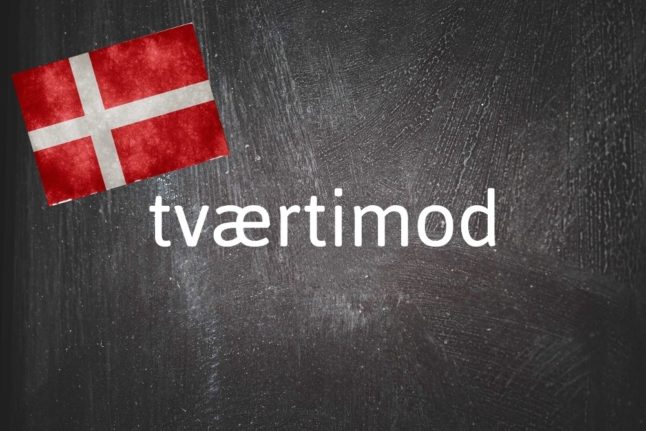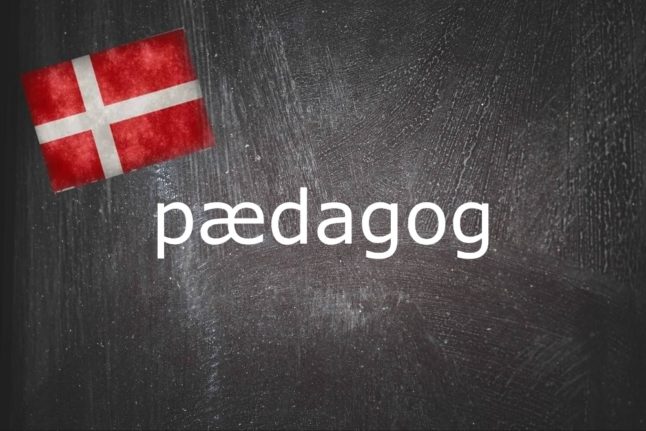What is tværtimod?
An adverb derived from two different words: tvær and imod.
While the meaning of imod in English, “towards” or “against”, is quite unambiguous, the first half of tværtimod is a bit more versatile.
As an adjective, tvær is normally used to describe a person – often a small child – who is displaying a grumpy, uncooperative, or generally unsociable mood. An example of a sentence in which it could be used is: Hun var rigtig tvær da hun vågnede i morges, men hun blev glad da hun kom i børnehaven (“She was very stroppy when she woke up this morning, but was in a good mood when she got to kindergarten”).
It is also often used as a prefix in adjectives. Tværgående, for example, means “intersecting” (en tværgående vej is “an intersecting street”), while tværfaglig means “multidisciplinary”, usually used in research and academic contexts.
You can also tvære something. As a verb, the word can have different meanings, ranging from flattening or crushing something to treating somebody very harshly.
The range of uses of the root tvære described above seem to fit with the closest translation of tværtimod, which is “on the contrary”.
Why do I need to know tværtimod?
With its dictionary meaning of “directly opposite to what was just discussed, opposite or reversed”, you can use this word to emphasise a point.
It can be placed in the middle of a sentence or dropped in at the end for extra impact:
Jeg er slet ikke træt af at spise vegetarisk indimellem, tværtimod synes jeg det er en måde, man kan bidrage til miljøet på.
I don’t at all mind eating vegetarian occasionally, on the contrary I think it’s a way to do your bit for the environment.
Min cykel er blevet stjålet og det bryder jeg mig ikke om. Tværtimod.
My bicycle has been stolen and I do not find that pleasing. Quite the opposite.



 Please whitelist us to continue reading.
Please whitelist us to continue reading.
Member comments